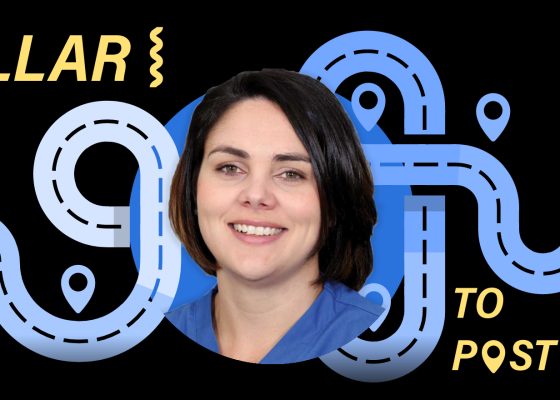The Australian College of Nursing wants the release and implementation of the National Nursing Workforce Strategy to help nursing’s role in the healthcare system, with person-centredness at its core.
The recent change to make pathology results more readily available to healthcare consumers is just one development in a range of changes taking place in our healthcare system, as it slowly moves towards better supporting partnerships between consumers and healthcare providers.
While previously, healthcare consumers had to wait for their results to be reviewed first by a healthcare provider, the new changes mean that most health information, like pathology and imaging results, must be uploaded to the My Health Record system immediately, unless the consumer opts out.
Some medical professionals may feel slightly uneasy about this, preferring to be the gatekeeper of individuals’ medical information. Indeed, the lay person may struggle to understand or correctly interpret results.
But the situation of our health system – workforce shortages combined with more complex conditions and more ageing Australians – means that we must do better in taking healthcare consumers with us on their health journey.
Enabling them to access information about their own health is part of this. Educating them to understand the information is another. It is, in fact, that person’s data no matter how you look at it.
To do anything else is lip service to the idea of person-centred care, and the individual as a vital part of the healthcare partnership.
It’s welcome to see this reflected in moves across the health system to improve partnerships between healthcare systems and healthcare consumers.
For example, NSW Health now requires hospital nurses and medical officers to proactively ask families if they are worried their child’s condition is worsening.
This change, which embeds that question in routine observations, is based on research showing that caregiver concern that a child is deteriorating in hospital is as valid an indicator of potential deterioration in a child as other vital sign abnormalities.
There are also advances in partnership-building in the primary sector, as recently highlighted by the Australian College of Nursing via the media.
The Murrumbidgee PHN has been supporting GP clinics to enable nurses to deliver clinics on chronic health conditions. The recent round of the clinics served 252 patients over seven months, with 78% booking follow-ups.
This represents vital preventative care and health promotion that Australia needs to invest more in.
Nurses are central in developing the partnership between healthcare systems and the consumers of healthcare.
And it is clear this is of keen interest to nurses – at this year’s ACN National Nursing Forum, there was significant interest in the presentations on nursing research into digital health mechanisms that are helping consumers track and report their own chronic condition symptoms.
But we need to better support nurses to support consumers.
While all healthcare professions should collaborate on patient education, traditionally nursing has taken the lion’s share of responsibility for supporting patients to, for example, manage their medications, monitor symptoms, change their dressings, or clarify medical instructions.

It was an honour to be able to make this point to our elected representatives on recent visits to Parliament House in Canberra.
We are urging them to enact changes that will allow nurses to use more of their skills and expertise to care for patients.
Related
Specifically, we want to see the release and implementation of the National Nursing Workforce Strategy. This strategy will set the path that will guide governments, employers, educators, regulators and the profession itself on optimising our role in the healthcare system, with person-centredness at its core.
Yes, there is a lot on the health agenda – and rearranging systems can be uncomfortable for the biomedical model status quo. But supporting nurses with a strategy that will help build partnerships between healthcare providers and consumers should be a priority, as it will mean a much smarter approach to managing Australia’s healthcare challenges.
Adjunct Professor Kathryn Zeitz is CEO of the Australian College of Nursing.
This article was originally published in the Australian College of Nursing’s monthly newsletter, ACN Agenda.




